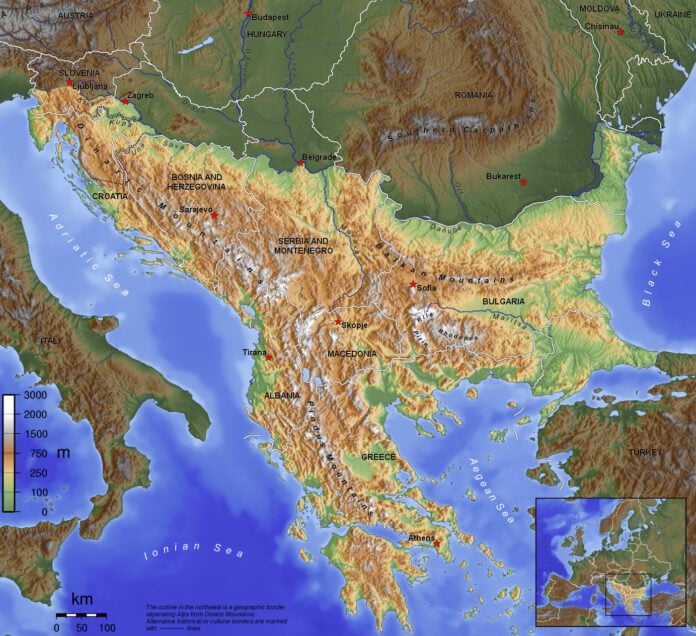At the beginning of the 20th century the Great European Powers,[1] divided into two totally antagonistic political-military alliances, were preparing themselves for the final settling of accounts among each other concerning the new division of political-economic spheres of influence and the redistributing of the colonies around the world. Their different interests overlapped upon the territory of South-East Europe, much more look down at the other parts of the globe, for the reason of the exploitation of the regional natural wealth and to take advantage of the military-strategic importance of South-East Europe as the strategic hinterland of East Mediterranean and the most fitting bond between Central Europe and the Middle East.
The Germans driving towards Baghdad, the Austrian-Hungarians and Italians towards Thessaloniki (Salonika), and the Russians towards Constantinople/Istanbul were going through the Balkans or Southeast Europe, while at the same time, France and Great Britain intended to protect the status quo in the region. For Berlin and Vienna, it was more than obvious that the road to the oil fields of the Persian Gulf runs exactly across the Balkans.[2]
A struggle for the domination over South-East Europe by both the Central Powers (Italy, Germany, Austria-Hungary) and the Entente Cordiale (France, Russia, and Great Britain) at the turn of the 20th century, especially in the years just before and during the Balkan Wars (1912−1913) appeared as diplomatic and economic introduction to the First World War (or the Great War, 1914−1918).[3] Each member of these two military-political alliances had its own interests in the region, which were of various natures (geopolitical, economic, financial, military, confessional, etc.). At the end of the 19th and beginning of the 20th century, each member of the Great European Powers directed and executed a policy toward Southeast Europe exactly according to these national (and capitalistic) interests.[4] Particularly the German Balkan policy turned out to be of crucial importance for the future national liberation struggle of the Balkan people and states by directly impacting the solving of the Eastern Question in the years from 1912 to 1918.
Ex-University Professor
Vilnius, Lithuania
Research Fellow at the Center for Geostrategic Studies
Belgrade, Serbia
www.geostrategy.rs
sotirovic1967@gmail.com
© Vladislav B. Sotirović 2024
[1] Great power is a “state deemed to rank amongst the most powerful in a hierarchical state system, reflected in its influence over minor states” [Heywood A., Politics, Third Edition, New York: Palgrave Macmillan, 2007, 450].
[2] Поповић В., Источно питање, Београд, 1928, 8, 210−216; Цвијић Ј., Балканско полуострво и јужнословенске земље, Београд, 1966, 10−12.
[3] On the new imperialism, new militarism, and WWI, see in [Magone M. J., Contemporary European Politics: A Comparative Introduction, London‒New York: Routledge Taylor & Francis Group, 2011, 49‒52].
[4] On Capitalism and its enemies from 1800 to 1918, see in [Marr A., A History of the World, London: Macmillan, 2012, 383‒465].
